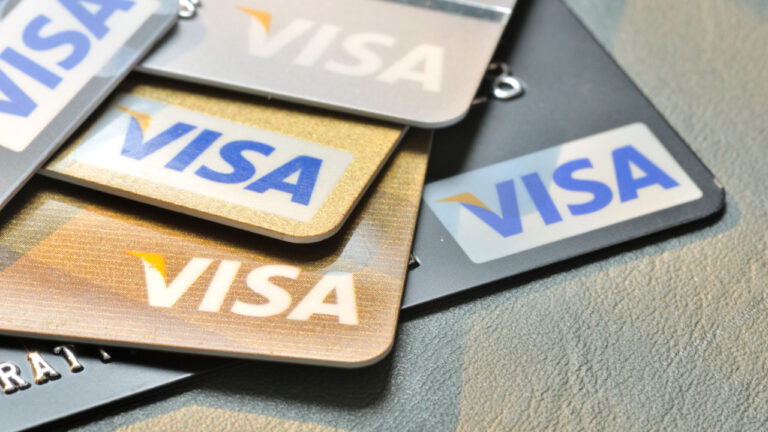What Every Merchant Should Know About Visa RDR

Visa’s Rapid Dispute Resolution (RDR) program offers merchants a way to automatically resolve eligible disputes before they escalate into chargebacks. This article breaks down what Visa RDR is, how it works, and how to decide if it’s right for your business. Learn how proactive resolution rules can reduce chargeback ratios, protect your merchant account, and streamline operations.
If you’ve ever been blindsided by a chargeback, you know how damaging they can be. Fees add up, revenue disappears, and your merchant account health suffers—sometimes without any warning. Even worse, disputes caused by first-party fraud or simple confusion are often preventable… if only you’d been notified earlier. That’s where Visa RDR comes in.
Let’s explore how Visa RDR works, why it matters, and what every merchant should consider before activating it.
What Is Visa Rapid Dispute Resolution?
Visa RDR is an automated platform that allows disputes to be resolved immediately—before they ever become chargebacks. Instead of waiting for the traditional representment process to fight a chargeback after it has been received, RDR lets merchants create rules that trigger automatic refunds when specific dispute situations occur.
This proactive approach eliminates unnecessary fees, preserves merchant reputation, and keeps dispute ratios under Visa’s compliance thresholds – all without any manual effort. RDR is part of the broader Visa Claims Resolution (VCR) framework, designed to simplify the dispute lifecycle.
TIP: Rapid Dispute Resolution is especially effective at addressing friendly fraud, buyer’s remorse, and low-value disputes that aren’t worth fighting.
How are RDR Rules Established?
RDR lets you build custom refund rules so that eligible disputes are resolved automatically. Set your criteria once, and let Visa handle the refunds – no guesswork, no extra steps. You get full control by combining structured rule-building with flexible settings:
- Transaction Amount Thresholds
Instantly refund any dispute below a value you choose, for example any transaction less than $25. - Date & Time Windows
Specify exact periods—holidays, sales events, weekend hours—when auto-refunds apply. - Issuer-Specific BINs
Target or exclude disputes from particular banks by their BIN number. - Order Identifier Matching
Use unique order or invoice numbers so only those exact transactions are refunded. - Dispute Type & Reason Codes
Filter by category (fraud, billing error) or drill down to codes like “unauthorized purchase” or “item not received.” - Currency Constraints
Limit refunds to specific currencies (EUR, CAD, etc.) to avoid unexpected FX impacts.
Worth noting: you can mix and match these parameters. For instance, refund all “item not received” disputes under $10 in USD from a specific bank—and skip the rest.
How RDR Works: Step-by-Step
Here’s a simplified breakdown of how Visa RDR functions in real time:
- Dispute Initiated: A cardholder files a dispute with their issuer.
- RDR Rules Engaged: If the dispute matches one of your predefined RDR refund rules, it’s flagged for automatic resolution.
- Real-Time Resolution: Visa’s system processes the refund on your behalf—instantly.
- No Chargeback Filed: The dispute is closed before it becomes a chargeback. No representment, no fees.
Because it all happens before chargeback finalization, RDR reduces overhead and dispute volume without requiring hands-on action.
Benefits of Using Visa RDR
Activating Rapid Dispute Resolution can help protect your business in several key ways:
- Fewer chargebacks – Cut dispute volume and chargeback ratios before they cause damage
- Lower operational costs – Eliminate labor tied to manual dispute handling and representment
- Improved merchant health – Stay below Visa thresholds to avoid penalties
- Faster dispute outcomes – Real-time refunds reduce customer friction and operational lag
- Customizability – Choose dispute types, transaction limits, and merchant categories to control RDR behavior
RDR users often see fewer disputes escalate, meaning improved metrics and less revenue risk.
When RDR Might Not Be the Right Fit
While Visa RDR is powerful, it’s not for every merchant. Here are a few scenarios to consider:
- High-ticket items or custom goods: Automatic refunds could be expensive or logistically difficult.
- Frequent dispute wins: If you’re successfully fighting most chargebacks, automatic refunds might lower ROI.
- Subscription services: Refund triggers must be carefully managed to avoid recurring revenue disruption.
How to Activate RDR for Your Business
RDR must be implemented through a Visa-authorized third-party facilitator or integrated solution. ChargebackHelp’s Resolve platform makes activation easy by:
- Mapping your transaction stream to eligible dispute types
- Defining custom refund rules aligned with your policies
- Monitoring resolution performance and savings
We’ll ensure your RDR setup meets Visa compliance and supports your broader chargeback strategy.
Ready to Reduce Chargebacks Before They Start?
If you want help implementing Visa RDR for your business to eliminate preventable chargebacks and streamline resolution, contact us today. Our chargeback experts can help you set up automated refund rules that protect revenue and keep your merchant account in good standing.
Why ChargebackHelp?
ChargebackHelp is a fully-managed chargeback management platform designed to help merchants like you take control of chargebacks. Our RESOLVE solutions support Visa RDR, Verifi CDRN, Ethoca Alerts, and more—combining them into a unified interface that makes chargeback prevention easy. With automated workflows, real-time alerts, and compliance-ready integrations, we help you stay one step ahead of fraud and protect your bottom line.
FAQs: Visa RDR and Rapid Dispute Resolution
What is the difference between Visa RDR and the traditional chargeback representment processes?
RDR automates resolution before a chargeback occurs. The representment processes involve manual evidence submission long after the chargeback is filed.
Does RDR cost money to use?
Yes. There may be platform or integration costs depending on your provider, and a set price per alert. However, RDR often reduces overall dispute costs significantly leading to overall cost savings.
Can I control which disputes get refunded automatically?
Yes. Merchants define the dispute categories, transaction values, and rules that trigger RDR refunds.
Is Visa RDR compatible with other alert systems like Verifi CDRN or Ethoca Alerts?
Yes. RDR can run alongside tools like Verifi CDRN and Ethoca Alerts as part of an integrated prevention strategy.
Will RDR affect my chargeback win rate?
Not exactly. RDR avoids disputes from becoming chargebacks, so those cases aren’t included in win/loss metrics. For others, you can still pursue traditional representment with the help of our RECOVER service.
How long does RDR take to activate?
Integration and configuration can take anywhere from a few days to a couple of weeks, depending on your payment provider and data readiness.







